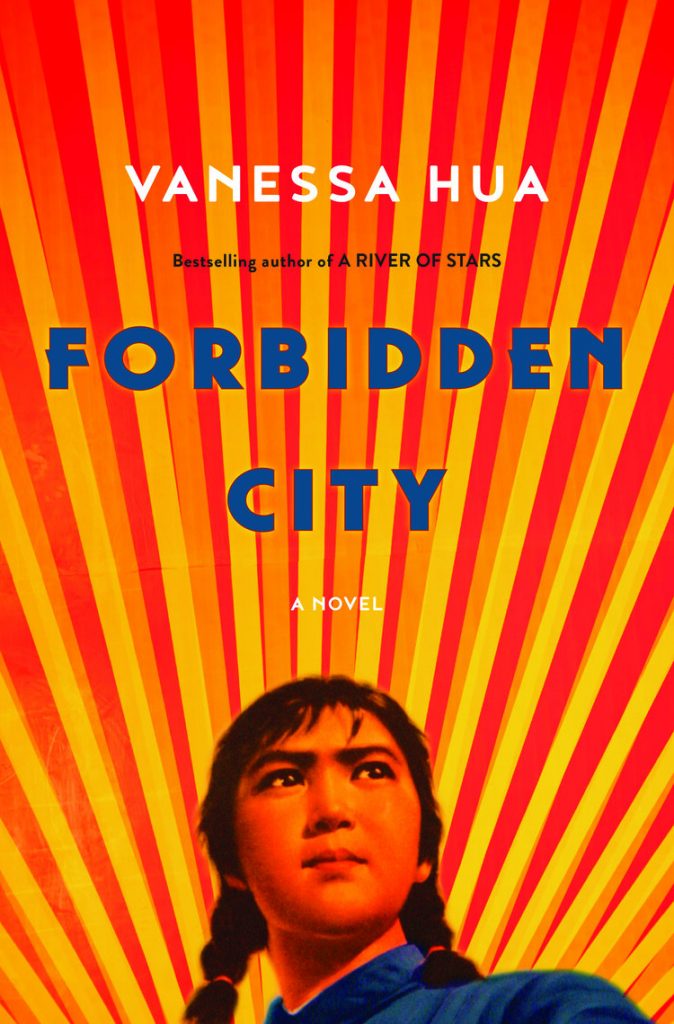This review contains spoilers.
“From the beginning, the Chairman had believed in us, believed in the power and rage of a teenage girl.”
Vanessa Hua’s 2022 novel, “Forbidden City,” is a work of historical fiction that required over a decade of research into Chairman Mao’s leadership of China, according to the author’s note at the end of the book.
Hua was inspired by documentary footage she had seen of Chairman Mao, the founder of the People’s Republic of China and leader from 1943 to 1976, with a group of young girls at a ballroom dance for Party officials. After more research, Hua discovered these teenage girls lived in the palaces and attended dances with political leaders that sometimes led to sexual interactions.
In “Forbidden City,” Hua’s fictionalized character, Mei Xiang, is plucked from her village and taken to the Capital to be a part of Mao’s troupe. Mei quickly becomes the Chairman’s favorite, and she becomes his personal aide and confidant. The climax of the book occurs when Mei helps Mao trick the President into believing she is a university student, turning the President against students of China and kick-starting the Cultural Revolution.
Unfortunately, Hua’s novel falls short in developing the relationship between Mei and Chairman Mao. The author presents an interesting “what-if” scenario, but Mei’s quick ascent from a normal villager to the Chairman’s confidant comes across as unbelievable, considering the Chairman’s tendency to distrust everyone around him.

“Forbidden City” is based on documentary footage of Chairman Mao dancing with a troupe of young girls in a ballroom. Courtesy of vanessahua.com.
The idea of a young girl being the cause of the Cultural Revolution is compelling, but it’s a falsehood. The Cultural Revolution was caused by a pervading sense of distrust throughout society, propaganda that was targeted at impressionable youth and years of political strategizing. It would have been more true to historical fiction to have Mei play a pivotal role in this larger social movement, instead of positioning her as a singular catalyst in this cause.
Mei’s character development from obedient servant to rebellious escapee is also rushed. Hua does delve into the psychology around the worshiping of Chairman Mao during this time period, but Mei is broken from the spell of propaganda very abruptly. Even though she has witnessed the Chairman’s malevolence before, she decides he does not care for the country’s well-being at a seemingly random time — a nation-wide rally —and decides to leave.
Despite the first-person perspective, it is unclear what Mei is thinking when she escapes from the Capitol, and readers are never given a clear reflection. Portions of the book are written after much time has passed between Mei’s experiences in the Capitol and her current life, and the narrative would have benefited from a holistic contemplation of Mei’s feelings towards that time in her life.
Similarly, the way Hua characterizes the Chairman seems unrealistic. She does mention in the author’s note that she included several evidenced details, like Mao’s use of sleeping pills and his bouts of depression. However, his dialogue, mannerisms and unrealistic decisions throughout the novel seem like a fabrication to fulfill the plot of the book. Because Mei ends up being the catalyst for the Cultural Revolution, Hua has to characterize Mao as a mentor and invent certain political decisions on his behalf.
The Chairman is also romanticized, not just in Mei’s own mind, but through his words throughout the novel. He comes across as caring at times, and it is hard to believe that someone as busy and determined as Mao would have had the time to show the inordinate compassion to a servant seen in this book.
Hua’s decision to shine light on an underrepresented group in China’s history is commendable, and the concept intrigued me to read further. She explores themes of grief and family with raw and powerful prose. If this book was purely fiction, it would have struck a different chord. However, its lack of historical accuracy and authenticity made it hard for me to appreciate the other elements.
Rating: 2/5 stars
Miranda Wilson (she/her) (25C) is studying international and Chinese studies. As well as writing for the Wheel, she is part of the Barkley Forum competitive debate team and the Emory Journal of Asian Studies. In her free time, she enjoys reading, watching movies and doing crosswords.





